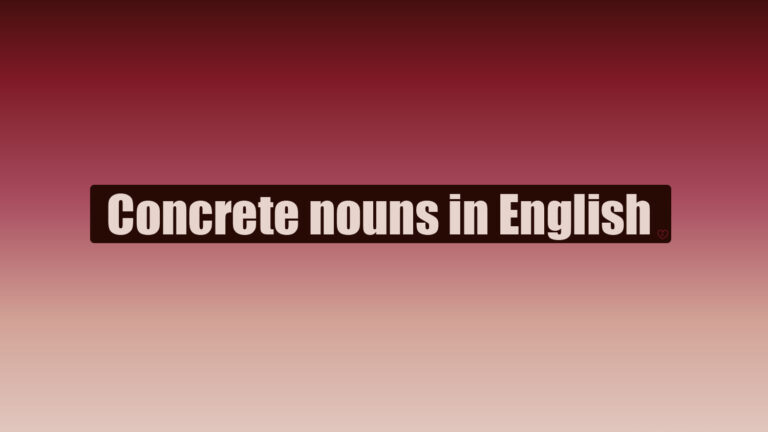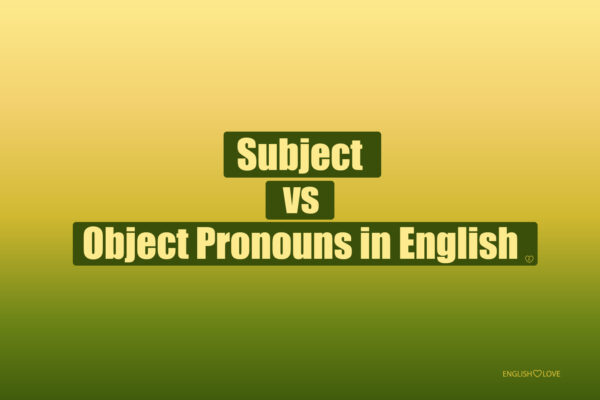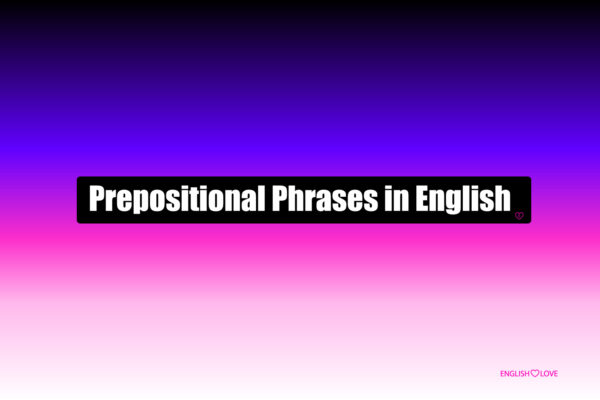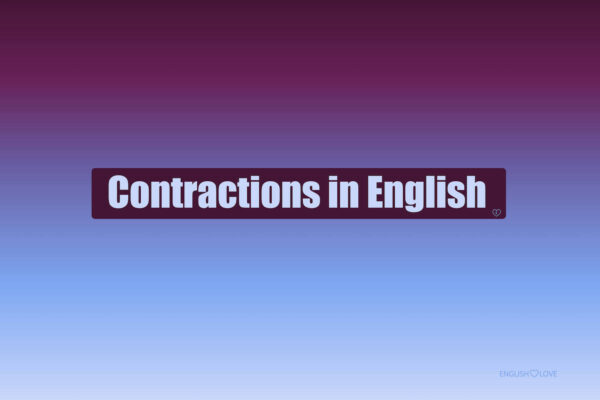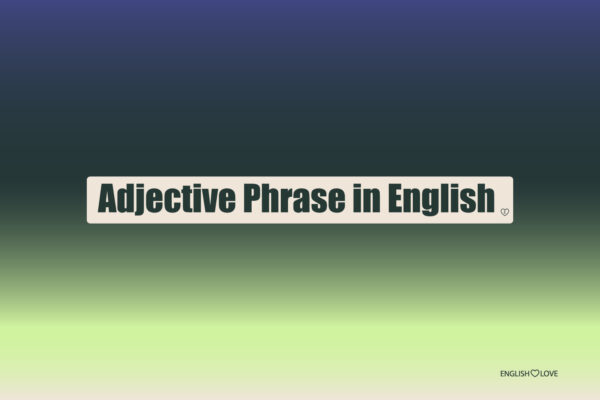Concrete nouns are integral to the English language. They are the words we use to describe tangible objects and entities that we can perceive through our five senses: sight, smell, taste, touch, and hearing. This guide delves deep into the world of concrete nouns, helping learners understand their significance, usage, and differentiation from abstract nouns.
What is a Concrete Noun?
Concrete nouns refer to tangible objects that can be perceived through one or more of our senses. For instance, animals, places, people, and objects are all examples of concrete nouns. Unlike abstract nouns, which denote ideas or concepts that are intangible, concrete nouns represent physical entities. For example, while “chair” is a concrete noun because we can see and touch it, “love” is abstract as it can’t be physically perceived.
What’s the difference between a concrete noun and an abstract noun?
Concrete nouns and abstract nouns are both categories of nouns, but they represent different types of entities.
- Concrete Nouns: These nouns refer to things that can be perceived through one or more of the five senses. They are tangible and can be seen, touched, smelled, tasted, or heard. Examples include “apple” (you can see and taste it), “music” (you can hear it), and “rose” (you can see, touch, and smell it).
- Abstract Nouns: These nouns denote ideas, qualities, or concepts that are intangible and cannot be perceived through the senses. They are often feelings, traits, or concepts. Examples include “love,” “freedom,” “wisdom,” and “time” (when referring to the abstract concept of time, not a specific moment).
Table: Differences between Concrete Nouns and Abstract Nouns
Table: Differences between Concrete Nouns and Abstract Nouns
| Aspect | Concrete Noun | Abstract Noun |
|---|---|---|
| Nature | Tangible | Intangible |
| Perception | Perceived through one or more of the five senses | Cannot be perceived through the senses |
| Examples | Apple, music, rose | Love, freedom, wisdom, time (as a concept) |
| Usage in Sentence | The apple is red. | Love is a powerful emotion. |
| Representation | Represents physical objects or entities | Represents ideas, qualities, or concepts |
Examples of Concrete Nouns
To further clarify, here are some examples:
- Animals: dog, cat, bird, fish
- Places: house, park, mountain, beach
- People: teacher, student, doctor, lawyer
- Objects: book, table, chair, laptop
Interestingly, some words can serve as both concrete and abstract nouns. For instance, “time” can denote a physical object like a clock or an abstract concept like a specific moment in the day.
Usage of Concrete Nouns in Sentences
Concrete nouns can play various roles in sentences:
- As subjects: The dog barked. The teacher assigned homework.
- As objects: I purchased a new book. We visited the park.
- In prepositional phrases: The cat rested on the chair. Students played around the school.
Plural Forms of Concrete Nouns
It’s crucial to ensure the correct form of the noun is used. For instance:
- The lawyers presented their arguments. (plural)
- The lawyer presented his argument. (singular) Certain nouns have identical singular and plural forms:
- The sheep is on the hill. (singular)
- The sheep are on the hill. (plural)
Conclusion
Concrete nouns are nouns that can be perceived through our senses. This guide explored their definition, examples, and usage in sentences. With practice, learners will seamlessly incorporate concrete nouns into their speech without giving it a second thought.
FAQ about Concrete nouns in English
What is a concrete noun?
A concrete noun refers to tangible objects or entities that can be perceived through one or more of our senses, such as sight, smell, taste, touch, or hearing.
How do concrete nouns differ from abstract nouns?
While concrete nouns represent tangible items that can be perceived through our senses, abstract nouns denote intangible ideas, qualities, or concepts that cannot be sensed physically.
Can a word be both a concrete and an abstract noun?
Yes, some words can function as both. For instance, “time” can refer to a physical object like a clock (concrete) or an abstract concept like a specific moment or duration (abstract).
How are concrete nouns typically used in sentences?
Concrete nouns can serve various roles in sentences, such as subjects, objects, or even within prepositional phrases. Examples include “The dog barked” (subject) and “I bought a new book” (object).
